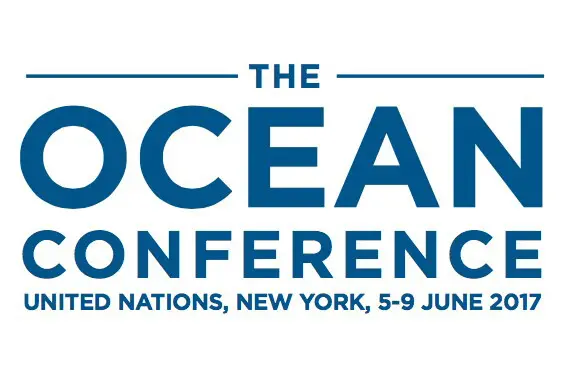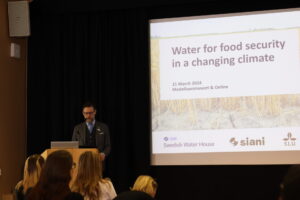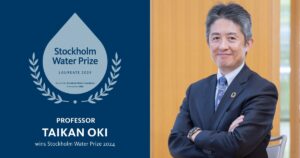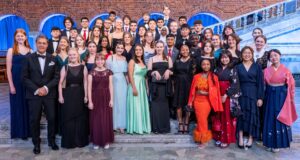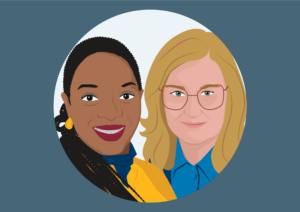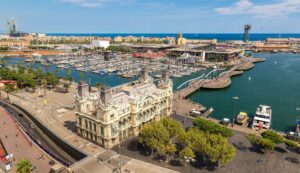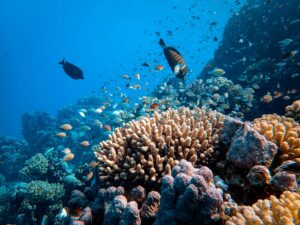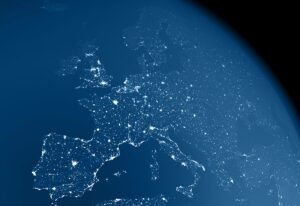We need to look upstream to save our oceans and achieve SDG 14
The Government of Sweden, one of the two hosts of the recent Ocean Conference, announced its support to source-to-sea approaches through a financial commitment to the Action Platform for Source-to-Sea Management.
The importance of source-to-sea approaches was emphasized by Ministers, practitioners and UN agencies at several sessions of the Ocean Conference that took place in New York on 5-9 June 2017.
The outcome of the conference “Our Ocean, Our Future: A Call for Action” refers explicitly to the need to significantly reduce marine pollution of all kinds, “particularly from land-based activities” and to promote waste prevention, develop sustainable consumption and production patterns and adopt 3R approaches.
The Action Platform for Source-to-Sea Management, which is supported by the UNDP-SIWI Water Governance Facility, co-organized two official side-events that the Conference.
The opportunities for coordinated implementation and monitoring of SDGs 6 (on water and sanitation for all) and 14 (on oceans) were discussed by both freshwater and marine representatives from United Nations, donor agencies and private sector at the side-event “Joining hands to help achieve SDGs 6 and 14 – a win-win for freshwater and oceans”. “The SDGs give us the goals and targets, but not the tools on how to get there” said Birgitta Liss Lymer, Programme Manager of the UNDP-SIWI Water Governance Facility and the Action Platform for Source-to-Sea Management. “We need to find more effective ways of coordinating and financing development options that benefit both upstream and downstream stakeholders”.
The importance of communicating the multiple gains by investing in measures that would benefit multiple SDGs such as wastewater management, to politicians, were highlighted in the event that also identified opportunities to draw upon existing UN-Water, UN-Ocean, UN agency and other initiatives to ensure strong coordination in the monitoring and implementation of the SDGs. The event also discussed the importance of addressing diffuse sources of pollution from sectors such as agriculture that for some reason did not make it into the SDGs. The event was organized by UN-Water, UN-Oceans and the Action Platform for Source-to-Sea Management.

The need for a circular economy and sustainable waste management were highlighted by Ministers from Sweden, Germany, the Seychelles and Jamaica at the side-event “Can we achieve SDG 14 without looking upstream? Starting at the source to save the sea”. Barbara Hendricks, Minister of Environment of Germany noted that “the best waste is the waste never produced”, emphasizing the need to involve consumers to achieve behavioral changes. Dr. Naoko Ishii, CEO of the Global Environment Facility (GEF), informed that the needs to address the connections between upstream pressures and downstream impacts, to work with the private sector to address plastic and broader issues of circular economy and to break the silos between institutions will be central elements in the next strategy of the GEF. Torkil J. Clausen, Chair of the Action Platform for Source-to-Sea Management, informed on the opportunity to draw upon the Platform for knowledge generation and exchange of experiences to move forward. The event was organized by the Swedish Government, the Swedish Agency for Marine and Water Management, the Action Platform for Source-to-Sea Management and the Indian Ocean Commission.

Stockholm International Water Institute (SIWI), as the Secretariat of the Action Platform for Source-to-Sea Management, also contributed to the Partnership Dialogue on Marine Pollution by committing to support knowledge exchange and learning on governance and management approaches for more effective water quality management from source to sea. The Partnership Dialogues were held to identify ways and means to support implementation of SDG 14.
